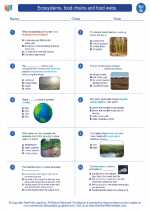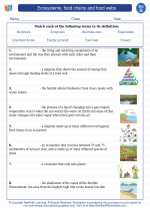Islands
An island is a piece of land that is surrounded by water. It can be found in oceans, seas, rivers, or lakes. Islands come in all shapes and sizes, from small, uninhabited islets to large landmasses with bustling communities.
Formation of Islands
Islands can be formed in several ways:
- Volcanic Islands: These islands are formed from the buildup of volcanic materials, such as lava and ash, that rise from the ocean floor. Over time, these materials solidify and create landmasses.
- Continental Islands: These islands are actually part of the continental shelf that has been surrounded by water due to rising sea levels. Examples include the British Isles and the islands of the Baja California Peninsula.
- Coral Islands: Also known as atolls, these islands are formed from the accumulation of coral reefs around a submerged volcanic island. Over time, the volcanic island erodes, leaving behind a ring of coral that encircles a lagoon.
Importance of Islands
Islands are not only important for biodiversity and ecosystems, but they also play a significant role in human history, culture, and economy. They can provide unique habitats for species found nowhere else on Earth and serve as popular tourist destinations.
Study Guide
To study the topic of islands, consider the following questions:
- How are volcanic islands formed?
- What is the difference between continental islands and coral islands?
- Why are islands important for biodiversity?
- Discuss the cultural significance of islands in human history.
- How do rising sea levels impact islands?
Additionally, review the different types of islands and their characteristics, as well as the ecological and environmental challenges that islands face, such as habitat loss and invasive species.
Understanding the formation, significance, and challenges of islands will provide a comprehensive understanding of this unique geographical feature.
.◂Science Worksheets and Study Guides Seventh Grade. Ecosystems, food chains and food webs

 Activity Lesson
Activity Lesson
 Worksheet/Answer key
Worksheet/Answer key
 Worksheet/Answer key
Worksheet/Answer key
 Worksheet/Answer key
Worksheet/Answer key
 Vocabulary/Answer key
Vocabulary/Answer key
 Vocabulary/Answer key
Vocabulary/Answer key
 Vocabulary/Answer key
Vocabulary/Answer key
 Vocabulary/Answer key
Vocabulary/Answer key
 Vocabulary/Answer key
Vocabulary/Answer key
